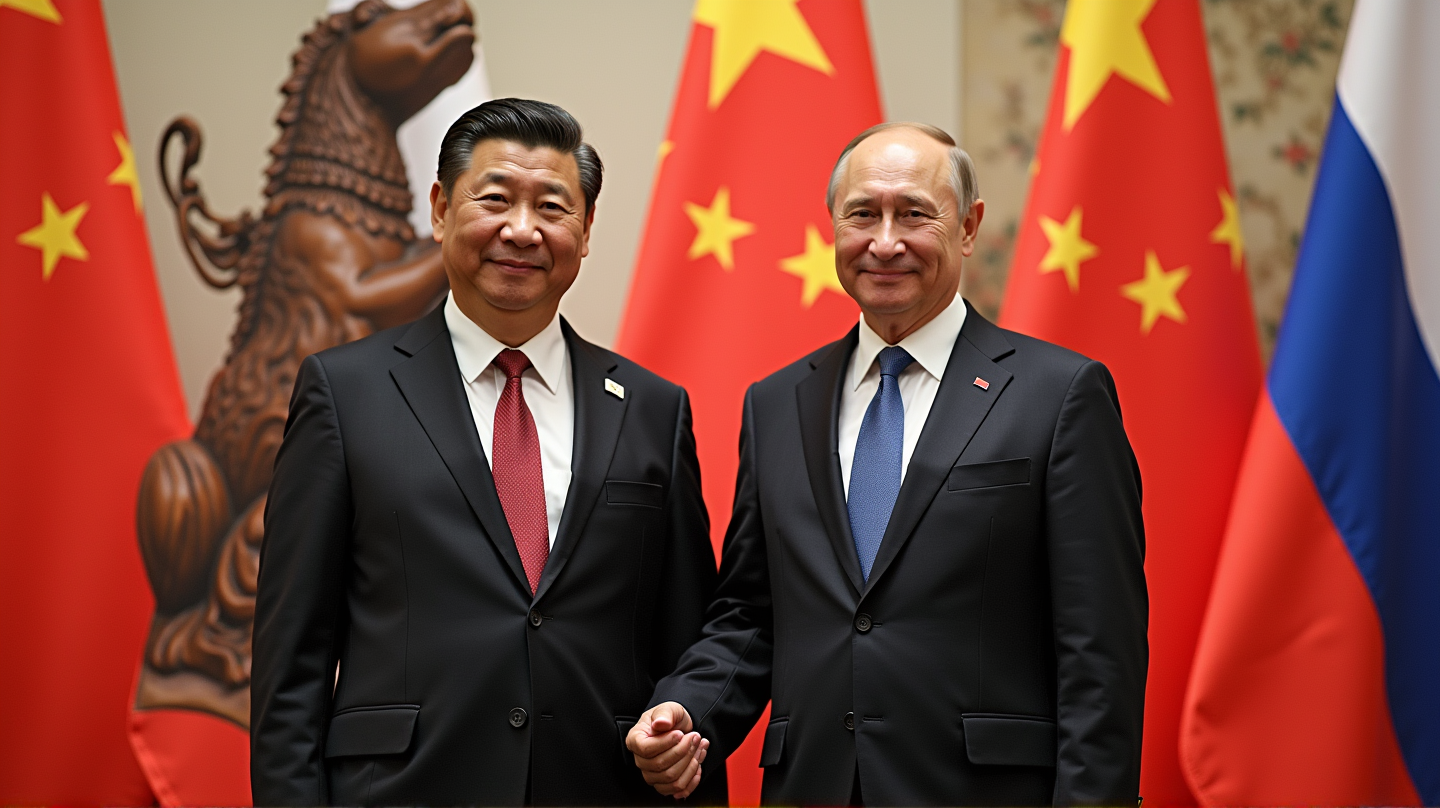China and Russia: A Strategic Alliance Shakes the Global Landscape
Explore how the meeting of Xi Jinping and Vladimir Putin in Moscow marks a significant step in the alliance against the West and Taiwan.

With the world watching closely, Chinese President Xi Jinping touched down in Moscow for a four-day visit that promises to deepen China-Russia ties in a period of rising geopolitical tensions. Against the backdrop of an unfolding drone attack, Xi’s visit is seen as more than ceremonial, promising strategic dialogues with Russian President Vladimir Putin.
A New Phase of Strategic Ties
Xi’s arrival marks the eleventh instance where the Chinese leader has visited Putin’s domain. This visit is poised to fortify a partnership characterized by mutual interests against Western influences. Here, democracy is juxtaposed with authoritarian resilience, as both nations align their geopolitical aspirations.
Economic Bonds and Energy Ventures
Central to their discussions are energy cooperation initiatives that highlight the enhanced trade volumes, having hit a record $245 billion in 2024. The planned Power of Siberia 2 gas pipeline stands as a testament to shared economic priorities. Energy infrastructure becomes a conduit not just for gas but for political solidarity, reflecting their combined influence on global markets.
Clouds of Conflict: The Ukraine Factor
Xi’s visit coincides with an escalation in the Ukraine-Russia conflict, marked by Ukrainian drone attacks aimed at Moscow. Despite this turbulence, the Kremlin remains steadfast in its public exhibitions of power, underscoring the visit’s symbolic weight. Ukraine’s reactions suggest an olive branch in one hand, with firepower in the other, questioning China’s intentions.
United in Stance Against Taiwan’s Independence
China’s stance on Taiwan remains firm, with Russia echoing the sentiment. In a world where territorial claims turn into political chess games, both nations label Taiwan as inalienably Chinese. The statements serve as a clarion call against Western recognition of Taiwan’s sovereignty, setting the stage for potential geopolitical friction.
Dual Forces for Global Stability—or Disruption?
Both nations paint themselves as custodians of global stability, yet their actions narrate another story. According to many political analysts, this relationship could redefine global alignments, drawing sharp contours between democratic values and authoritarian governance. The international community watches closely, wary of the implications their combined power may hold.
As Moscow plays host to a large foreign delegation amidst Western isolation, the intricacy of these alliances takes center stage. According to Euro Weekly News, Xi and Putin’s united front becomes a profound statement, influencing both local narratives and global perceptions.
In conclusion, while Xi Jinping and Vladimir Putin wear the veneer of allies championing a new world order, underlying currents suggest a possible reshaping of international alliances. Whether this partnership heralds a new era of cooperation or confrontation remains one of today’s most intriguing geopolitical questions.





